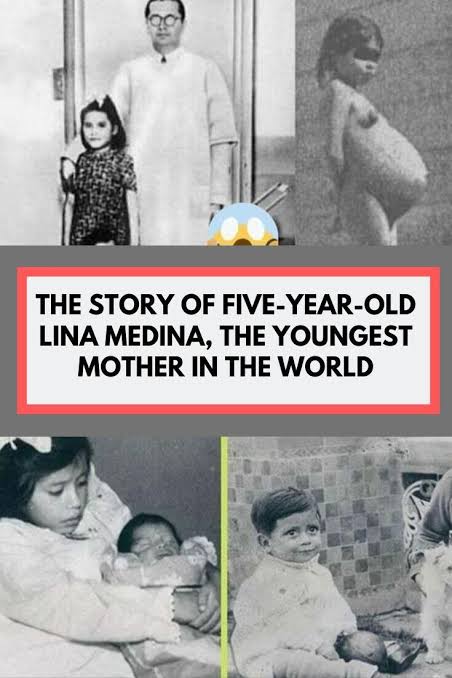How does a five-year-old girl become the world's youngest mother? The answer lies in a tragic tale that unfolded decades ago, involving Lina Marcela Medina de Jurado. This is not merely a story of medical marvels but one steeped in controversy and heartbreak.
Lina Marcela Medina de Jurado was born on September 23, 1933, in Ticrapo District, Peru. At just five years old, she found herself thrust into an unimaginable situation. Her pregnancy made headlines worldwide as she became the youngest confirmed mother in history when she gave birth to her son Gerardo on May 14, 1939. This remarkable event brought both admiration for her survival and immense scrutiny over the circumstances surrounding such a young pregnancy. Medical experts determined that precocious puberty played a significant role in enabling her body to conceive despite her tender age.
| Bio Data & Personal Information | Details |
|---|---|
| Full Name | Lina Marcela Medina de Jurado |
| Date of Birth | September 23, 1933 |
| Place of Birth | Ticrapo District, Peru |
| Age at Time of Pregnancy | 5 years, 7 months, 21 days |
| Son’s Name | Gerardo Medina |
| Career | Worked as a seamstress after gaining fame |
| Professional Information | Referenced here |
The case of Lina Marcela Medina de Jurado raises profound ethical questions about reproductive rights and child protection. In April 1939, when she delivered her baby through cesarean section, public discourse revolved around whether a child should ever be denied access to abortion services. While modern standards have evolved significantly since then, the implications remain relevant today. Critics argue that denying abortions to children who become pregnant under traumatic circumstances perpetuates cycles of abuse and neglect.
Precocious puberty refers to the early onset of sexual development in children, typically before the age of eight. For Lina, this condition allowed her body to mature faster than usual, enabling conception even though she was still a child. However, the psychological and emotional toll of becoming a mother so young cannot be overstated. Despite enduring unimaginable hardships, Lina managed to raise her son Gerardo, who tragically passed away at the age of 40 from a bone marrow disease.
Throughout her life, Lina maintained silence regarding the identity of the father, adding further mystery to her already enigmatic story. Speculations abound, with some suggesting foul play or exploitation by adults close to her. Yet, no concrete evidence has emerged to conclusively identify the perpetrator. Regardless, the stigma associated with her circumstances likely influenced her decision to keep quiet about the matter.
In recent years, discussions around cases like Lina's have reignited debates about legal frameworks governing consent, abuse prevention, and healthcare accessibility for minors. Advocates emphasize the importance of comprehensive sex education programs aimed at empowering young people with knowledge and resources necessary to make informed decisions about their bodies. Additionally, they stress the need for robust support systems designed to protect vulnerable populations from exploitation.
Despite living most of her life away from the spotlight, Lina's legacy endures as a symbol of resilience amidst adversity. She worked as a seamstress later in life, quietly raising her family while navigating the complexities of fame thrust upon her during childhood. Today, at 89 years old, she continues to inspire conversations about the intersection of science, ethics, and human rights.
As society progresses, it becomes increasingly vital to learn from historical examples like Lina's. By understanding the challenges faced by individuals caught in extraordinary situations, we can better craft policies and practices that prioritize safety, dignity, and justice for all members of our communities. After all, every person deserves the opportunity to live free from harm and empowered to shape their own destiny.

